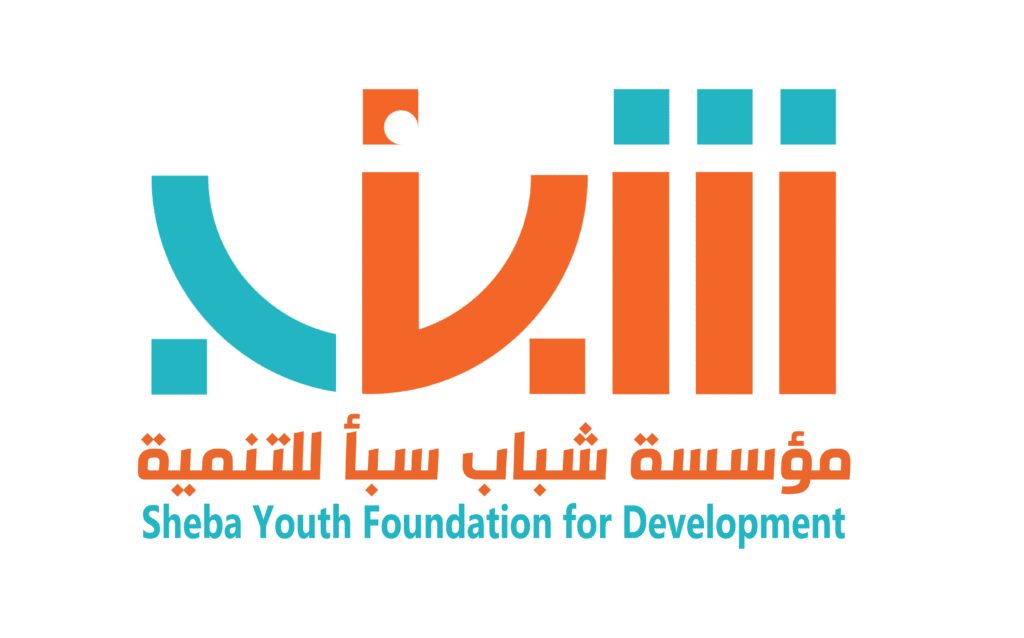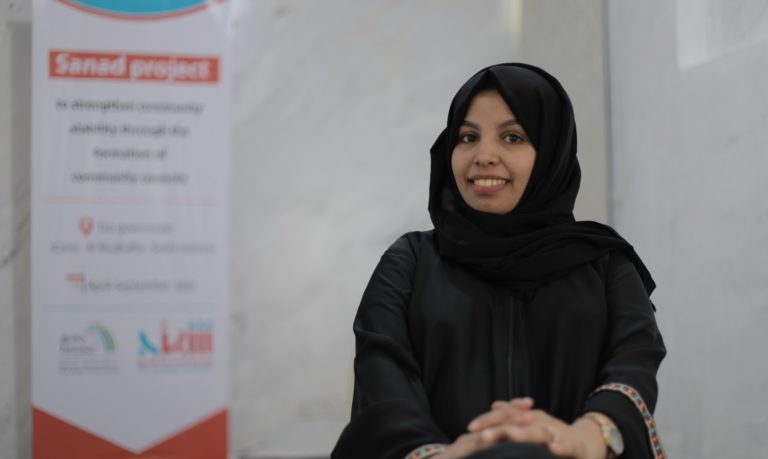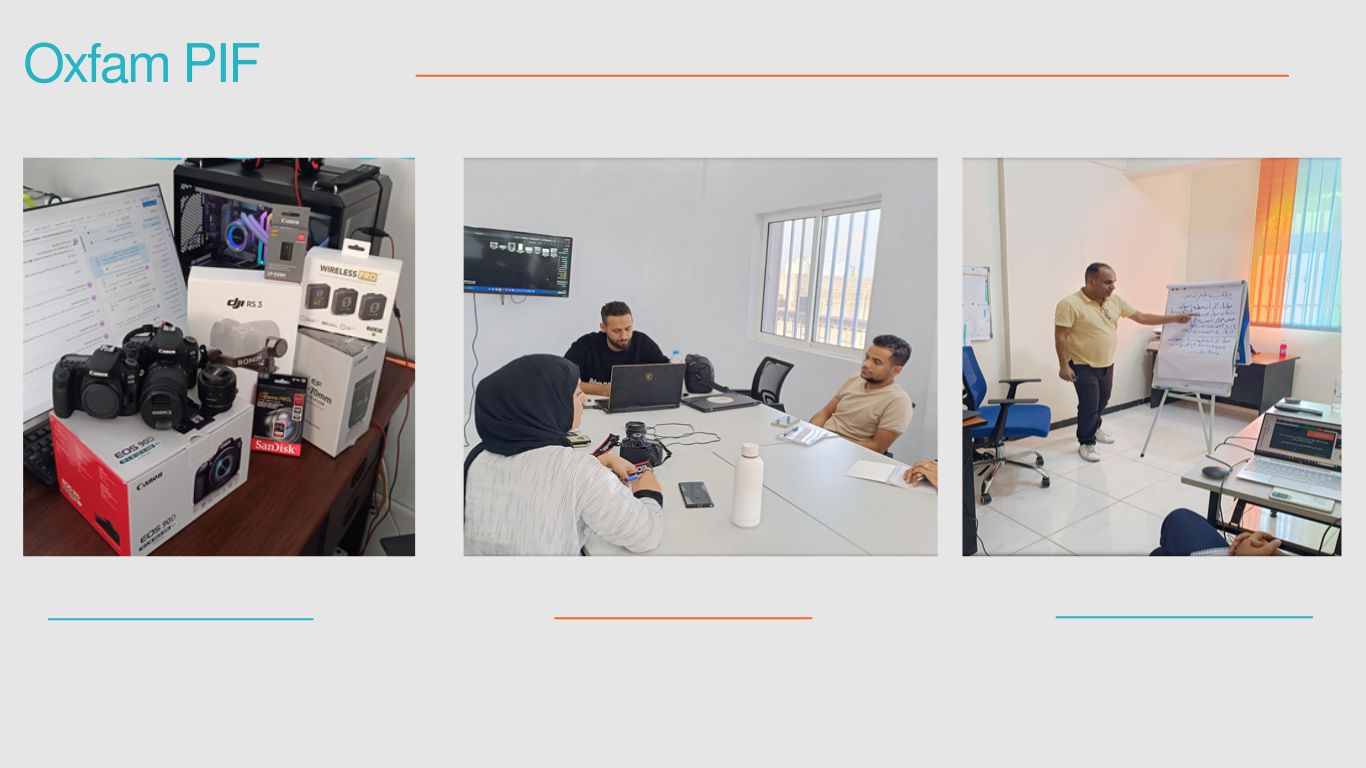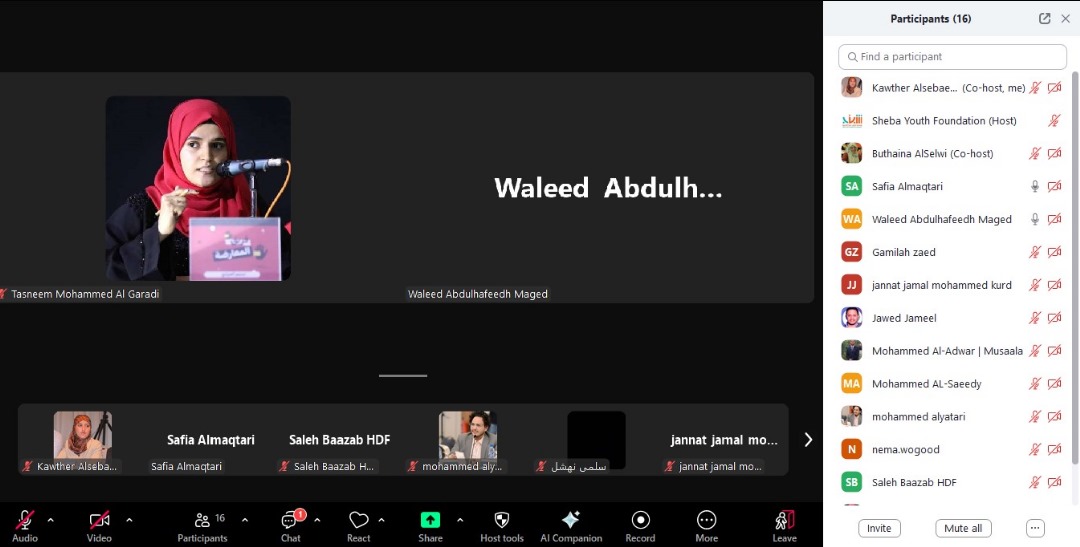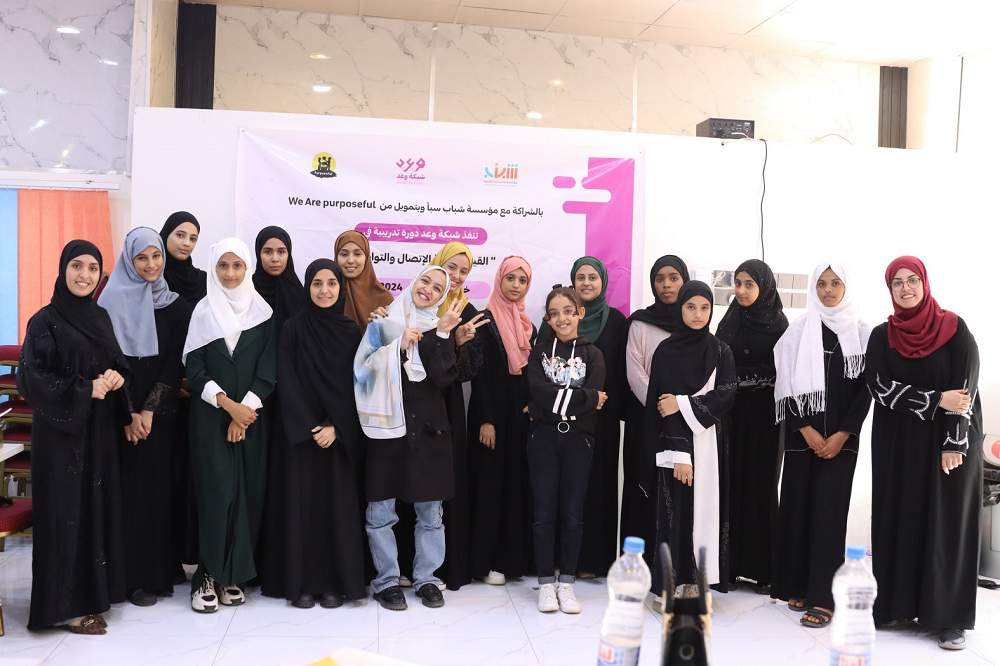Change is made by insisting on achieving it, and here is Wiam Al-Maqtari crowning her participation in Sanad Project by becoming the first woman to head a community council in Taiz Governorate..
Wiam, aged 28 – law graduate, heads the community council of Salah District, and works in complete harmony with the council members to support the local authorities in resolving community conflicts.
“The challenge was that the team consisted of both local authority and youth members, and I tried to take into account the sensitivity of the difference in age and experience between me and them, and they trusted me,” says Wiam.
Determination Wins
Wiam started making her way into community work in 2018, and with her renewed insistence on continuing, she applied to participate in Sanad project, through its advertised form, after which she got informed of her acceptance in the project, to be a real opportunity for a new start through which she could make change.
She says, “I often focus on the humanitarian and human rights field, especially what is related to women, but to work in the community council was my greatest step to prove the ability of women to achieve success.”
Merit and Trust
Wiam found herself worthy of running for the presidency of the community council, after the intensive sessions she had received through Sanad project. In the second stage, the stage of forming community councils, Wiam ran for the presidency of the community council of Sala District, where she lives, and she was the only woman running for it against another candidate, but she won the majority of votes.
Unique Experience
“Heading a community council is a very wonderful experience,” said Wiam, who has benefited a lot from it and still do, stressing, “The challenge was that the team was composed of both local authority and youth members, but I tried to take into account the differences in age and experience between me and them, and they trusted me.”
“There are difficulties and challenges concerning the belief of the rest of the council members that they are led by a woman. Although I have noticed that there were still those who thought that way, such differences dissolved after the meetings we held,” adds Wiam.
About her feeling after being elected as the head of the council, Wiam says: “After I had been elected to the presidency of the council, I felt responsible, and that gave me a great positive push and a high moral appreciation to take this responsibility as it should be.”
Role of Woman
“My succeeding in breaking the stereotype about women’s participating in community councils is mainly due to Sanad project,” she says, noting that the support she got from the project management and advisor was an additional factor that enabled her to achieve that success, which she believes is a success for all women in her district.
Wiam also believes that women have the same great role as men, stressing that women have proven their effectiveness and efficiency in all areas of life and that their role is no longer limited to education or health.
She also explains, “Women now share in decision-making, and they have participated in most areas of life, where women have been volunteers and participated in community work that serve the community. They have, too, become entrepreneurs who have strongly entered the field of entrepreneurship and have contributed to development projects. They have entered the political field as well as the media field and may others, and they now have an entity.”
But she believes that the role of women in our country remains framed by customs, traditions and inherited and retrograde ideas, noting that the lack of economic empowerment of women also hinders their empowerment in other fields.
Wiam Al-Maqtari’s success story comes within the framework of the community councils formed by Sanad project, which is implemented by Sheba Youth Foundation in partnership with Jusoor Program, aiming to support the local authorities in resolving community conflicts through the formation of those community councils.
